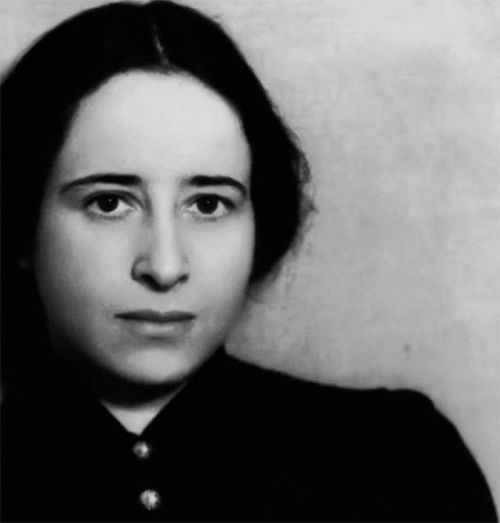
Saying Good-bye to Hannah
January 22, 1976
by Mary McCarthy
Her last book was to be called The Life of the Mind and was intended to be a pendant to The Human Condition (first called The Vita Activa), where she had scrutinized the triad of labor, work, and action: man as animal laborans, homo faber, and doer of public deeds. She saw the mind’s life, or vita contemplativa, as divided into three parts also: thinking, willing, and judging. The first section, on thinking, was finished some time ago. The second, on willing, she finished just before she died, with what must have been relief, for she had found the will the most elusive of the three faculties to grapple with. The third, on judging, she had already sketched out and partly written; though the literature on the subject was sparse (mainly Kant), she did not expect it to give her much difficulty.
I say “her last book,” and that is how she thought of it, as a final task or crowning achievement, if she could only bring it off—not only filling in the other side of the tablet of human capacities but a labor of love in itself for the highest and least visible of them: the activity of the mind. If she had lived to see the book (two volumes, actually) through the press, no doubt she would have gone on writing, since her nature was expressive as well as thoughtful, but she would have felt that her true work was done.
I say “her last book,” and that is how she thought of it, as a final task or crowning achievement, if she could only bring it off—not only filling in the other side of the tablet of human capacities but a labor of love in itself for the highest and least visible of them: the activity of the mind. If she had lived to see the book (two volumes, actually) through the press, no doubt she would have gone on writing, since her nature was expressive as well as thoughtful, but she would have felt that her true work was done.
She would have executed a service or mission she had been put into the world to perform. In this sense, Hannah, I believe, was religious. She had heard a voice such a spoke to the prophets, the call that came to the child Samuel, girded with a linen ephod in the house of Eli, the high priest. One can look on this more secularly and think that she felt herself indentured, bound as though under contract by her particular endowments, given her by Nature, developed in her by her teachers—Jaspers and Heidegger—and tragically enriched by History. It was not a matter of self-fulfillment (the idea would have been laughable or else detestable to Hannah) but of an injunction laid on all of us, not just the talented, to follow the trajectory chance and fate have launched us on, like a poet keeping faith with his muse. Hannah was not a believer in slavish notions of one’s “duty” (which may be why she had so much trouble with the section on the will) but she was responsive to a sense of calling, vocation, including that of the citizen to serve the common life. She was also a very private person, and I think (though we never spoke of it) that The Life of the Mind was a task she dedicated to the memory of Heinrich, a kind of completion and rounding out of their common life.


From amidst the praise for Margarethe von Trotta's film "Hannah Arendt" comes a comment about one particular aspect of the film: "In ... "Hannah Arendt," the political theorist's friendship with the novelist and critic Mary McCarthy gets its first cinematic treatment. The results are not good... Nearly every exchange between the two women is about men and love. It is symptomatic of a trend, I think. We are in a moment of unprecedented popular interest in the matter of female friendship, and this has been greeted as a triumph for feminism. But what we get, for all that, is rather flat portraiture: women giggling about crushes before finding real fulfillment in heterosexual romance and the grail of marriage." Writer Michelle Dean goes on to characterize Arendt and McCarthy as true literary friends, and their friendship as a bulwark against and a balm for reactions against their works; she captures something essential about Arendt-also made clear in the movie-by referring to Arendt as "Hannah Arrogance." The point is that Arendt and McCarthy's special relationship was built around a shared sense of their independence from the male-dominated world of New York intellectuals that turned on Arendt so furiously.



From amidst the praise for Margarethe von Trotta's film "Hannah Arendt" comes a comment about one particular aspect of the film: "In ... "Hannah Arendt," the political theorist's friendship with the novelist and critic Mary McCarthy gets its first cinematic treatment. The results are not good... Nearly every exchange between the two women is about men and love. It is symptomatic of a trend, I think. We are in a moment of unprecedented popular interest in the matter of female friendship, and this has been greeted as a triumph for feminism. But what we get, for all that, is rather flat portraiture: women giggling about crushes before finding real fulfillment in heterosexual romance and the grail of marriage." Writer Michelle Dean goes on to characterize Arendt and McCarthy as true literary friends, and their friendship as a bulwark against and a balm for reactions against their works; she captures something essential about Arendt-also made clear in the movie-by referring to Arendt as "Hannah Arrogance." The point is that Arendt and McCarthy's special relationship was built around a shared sense of their independence from the male-dominated world of New York intellectuals that turned on Arendt so furiously.


No comments:
Post a Comment